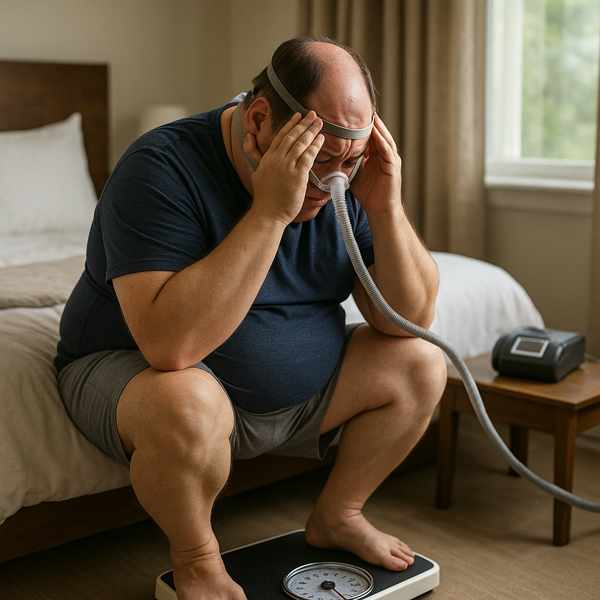
Many people with sleep apnea experience difficulty sleeping, loud snoring, and interrupted breathing patterns.
While not always a complete cure, weight loss often lowers the impact of sleep apnea significantly.
What Is Sleep Apnea?
The most common form is obstructive sleep apnea (OSA), caused by blocked airways.
Common symptoms include:
- Loud snoring
- Interrupted breathing patterns
- Difficulty staying alert during the day
- Signs of disrupted oxygen flow
How Obesity Impacts Breathing
Fat deposits in the throat may narrow the airway, making it more likely to collapse.
Key risk factors include:
- More weight increases OSA risk
- Narrows the airway path
- Poor muscle tone in the throat
Does Losing Weight Help OSA?
Especially in individuals with mild to moderate OSA, lifestyle changes can be very effective.
Possible benefits of weight loss:
- Less airway obstruction
- Reduced risk of waking up during sleep
- Less need for CPAP machines or surgery
- Feel more rested and alert
However, weight loss may not cure sleep apnea in all cases — especially if anatomical issues or severe OSA are present.
How Much Weight Loss Is Needed?
Even modest weight loss can have a big impact.
Tips:
- Start with small, achievable goals
- Combine diet and exercise
- Notice snoring, energy, and daytime fatigue improvements
Healthy Ways to Lose Weight for Sleep Improvement
Effective strategies:
- Limit sugar and processed carbs
- Exercise regularly (cardio + strength)
- Sleep on your side
- These relax throat muscles and worsen apnea
Working with a nutritionist or sleep specialist can provide more personalized support.
What to Do if Symptoms Persist
While more info weight loss is helpful, it may not fully resolve sleep apnea for everyone.
- Keeps airways open at night
- Oral appliances
- To remove excess tissue or reposition structures
Is Weight Loss the Answer?
So, can weight loss cure sleep apnea? In many cases, it can help manage the condition.
Talk to your healthcare provider, make informed decisions, and take proactive steps toward better health and rest.